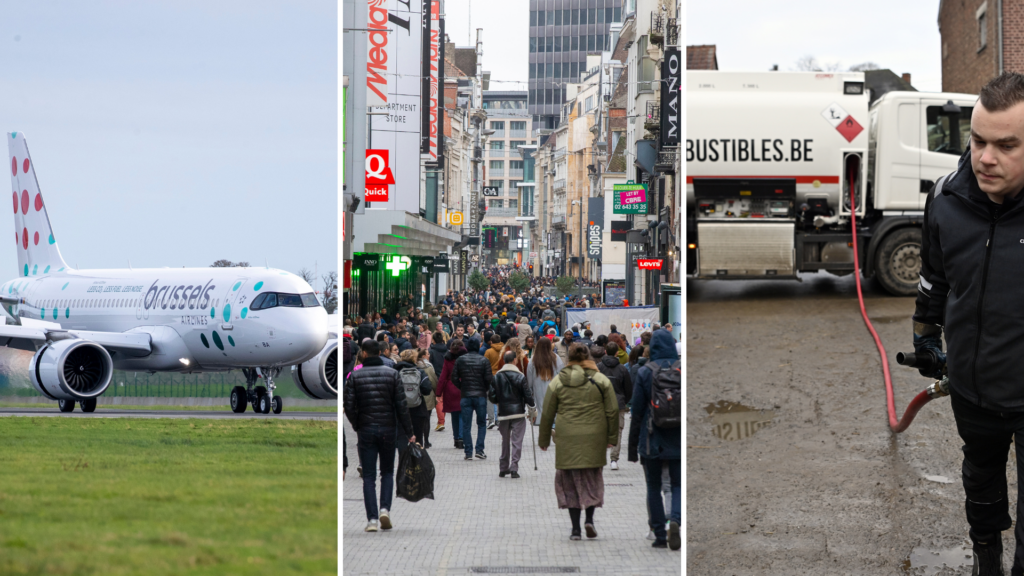Inflation in Belgium rose above 3% again in September, as the end of the summer season saw plane tickets and hotel prices fall whilst the cost of gas and electricity have gone up.
The key index used to determine wage increases is also rising and it is now expected that public sector wages and social benefits will be indexed by January 2025.
Latest figures from Statbel show that inflation rose to 3.06% in September – up from 2.86% in August, although still lower than 3.64% in July. While inflation increased in September, the consumer price index decreased slightly, by 0.66 points, to 132.15 points.
The main price increases that had an upward effect on the consumer price index in September were for electricity (+4.4%), natural gas (+4.5%), and travelling abroad and city trips (+2.6%). However, the overall index figure was brought down by price drops for plane tickets (–17.7%), motor fuels (–3.8%) and hotel rooms (–10%).
Energy inflation still high
Energy inflation remains relatively high, standing at 6.72% in September (albeit slightly lower than 6.96% in August and down from 14.01% in July).
For electricity, inflation is currently at 14.8% compared to 11.3% last month. For natural gas, it went from 103.0% last month to 138.1% this month.
But Statbel has repeatedly stressed that energy inflation is artificially skewed by the government ending energy supports which it had offered during the peak of the energy crisis. Statbel estimates that the removal of energy supports will continue to skew energy inflation figures until February 2025.
With energy discluded from the calculation, inflation amounted to 2.71% in September – up from 2.47% in August.
Next wage indexation expected in January
The smoothed health index (a four-month average inflation tracker which is used as the basis for indexation of pensions, social security benefits and some salaries and wages) stood at 129.88 points in September.
The next threshold for public service and social benefits to increase is set at 130.67 points. The last time the pivotal index was exceeded was in April of this year.
The Federal Planning Bureau predicts that inflation in Belgium will surpass the next indexation threshold in January 2025, which would mean a boost for social benefits and public sector wages between February and March.
As reported by L'Echo, HR services provider SD Worx expects the wage increase in January to be around 3.5%, following an increase of 1.4% in January 2024, 11.08% in January 2023 and 3.58% in January 2022 – equating to a total rise of 19.5% over three years.
This is putting increasing pressure on employers, with the hospitality sector and small businesses most vulnerable, as hospitality lobby groups are calling for indexation to be calculated using net rather than gross wages.

